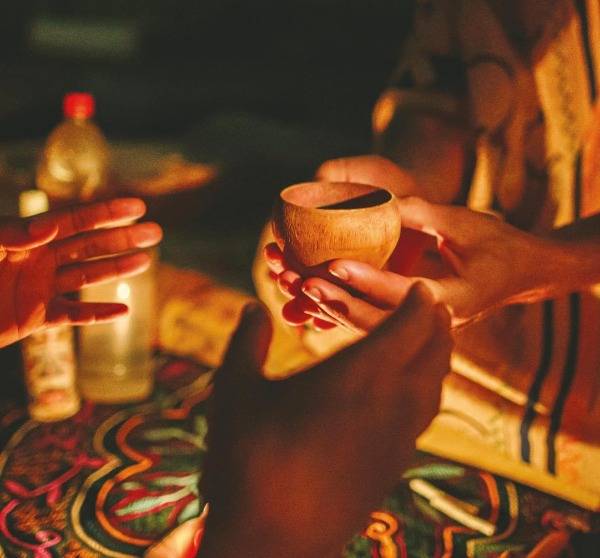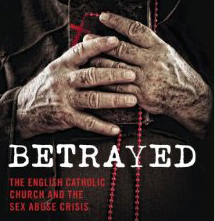It is not uncommon to hear of recent converts to Islam changing their mind and leaving the faith again. But to leave Islam after being born and raised into it is something entirely different. Islam is more than a religion; it is a way of life. It comes with a culture and a community. I was born Muslim by my Arab parents, who had emigrated to the United States in search of a better life. But having difficulty learning English and getting accustomed to American culture, they clung to other Muslims in the area, gaining a sense of pride by becoming more and more religious. Eventually my father became the emir (leader) of a local mosque.
My whole life centred around Islam – and nothing else. I never missed a single prayer from intermediate school till the day I left Islam. To uphold this I left exams, walked out of cinemas, and pulled over on the freeway to keep my prayers. Even my Arabic was Islamic. One day my father's friend took me out to dinner and I thanked him saying "shukrun" (thank you). He became upset and told me never to say that again. Instead, I was to say "jazakullahu khair" (may Allah reward you with goodness).
My devotion to Islam would have been absolute, had there not been one problem: the issue of Hell. Although I believed in it, I found it hard to understand why every non-believer would end up there – irrespective of who they were and what they did. Surely Hell was reserved for the wicked, I thought.
One day, after attending my ethics class, my friends and I discussed some of the atrocities committed by the Nazis. Hearing what they had done made me feel physically sick. If anyone deserved Hell, I felt they did. It was around this time that I began to ask questions which didn't cease to haunt me. I asked myself which was worse: Hell or torture in a concentration camp? Or Hell and then all the tortures at a concentration camp combined? Hell had to be worse. It was a place no mind could imagine, where the nerves of your teeth would each be the size of Mt Uhud, I thought. And this was to be the fate of all non-believers? I asked myself who was worse: Allah or Hitler?
To my mind at the time, this question sounded very wrong. I knew I had to throw the question out of my mind and ask for forgiveness from Allah and protection from Satan, the Outcast. I did. I tried. It kept coming back. You know how fast the human mind thinks, and a young mind quickly outruns any resolve. And however much I fought this question, doubts – the validity of which I couldn't deny – slipped past my defences. I compared the two extremes: God vs Hitler. God was perfect. Hitler was just a human. God was responsible for all the torture in Hell, while it wasn't just Hitler but all the ranks of Nazis who were responsible for their atrocities. Hitler's damage may still be felt today, but Allah's damage will last an eternity. At the time I came up with many more comparisons.
Eventually I allowed myself to think these thoughts, because they haunted my mind so much that I felt if I thought them out, they wouldn't nag at me any more. I tried to think them through as fast as possible, sometimes quitting in the middle if I found myself heading towards a result I didn't like. I must have looked like someone going through cold turkey. Since God cannot be worse than Hitler, I found myself ceasing to believe in Hell. I cried. I immediately prayed and begged God for forgiveness. I felt Islam was still perfect, but I wasn't. This was the day I left Islam.
By dropping one of the core pillars of faith, belief in Hell, I was forced out of Islam by its own rules. I didn't want to leave. I continued my five daily prayers for three months and tried to forget my conclusions. But in those months I hardly slept more than two hours each night because I was so worried. I even worried about dying in my sleep for my sins. I still loved Allah with all my heart, but I knew that now, as far as Allah was concerned, I would end up in Hell whatever I did.
I thought, if I'm going to Hell, I had better deserve it. I took a trip to Las Vegas. I got involved with drugs, alcohol, women, theft, and eating pork. I remember fighting back tears, while watching a stripper undress in front of me. I stayed up all night drinking at parties until I had to throw up. By the end I felt deeply ashamed about what I was doing. This wasn't me. I was going to have to learn the hard way how to live without Allah and the set of rules Islam had given me. I had yet to understand the concept that a good person can exist without a religion. All I hoped for was to learn to live any life at all without Islam.
In my free time I searched obsessively for another religion. I even started Baha'i daily prayers. I wanted to find a faith that could encompass all my beliefs. I attended churches, Baha'i groups, and SRF meditation circles before realising, with the help of a friend, that no religion would ever fully satisfy me. It took me a few months to get used to living life without a faith and stop attending religious services. As I learned how to live without religion, I began to feel a sense of release, of euphoria. All the issues and problems I had with Islam, as a Muslim, I didn't need to understand any more. Nor did I feel the need to find an answer to something that I felt was morally wrong. I was getting drunk on life alone.
I began to abandon all inhibitions again, this time not to spite Allah but simply because I could. I became extremely social, started driving recklessly, even bribing my classmates to do my school-work for me. Unsurprisingly, I ended up failing all my classes. This back and forth confused my friends. One of them urged me to seek professional help to control my emotions, knowing I wouldn't be able to talk to my parents about any of this.
This was true. I couldn't talk to anyone in my family about what I was going through. My parents know nothing but Islam, and I couldn't see how they would be able to understand me. Even my sister, who hardly lives up to my family's Islamic expectations, prefers to think of me as a non-practising Muslim than to accept that I have left the faith entirely.
It's not hard to see why. My father once told me the only reason he still loved my sister was because she was Muslim. If she left Islam, then he would personally kick her out of the house and reject her as his daughter. Hearing this, I kept my mouth shut.
These days, when I'm at home I pretend to be a Muslim. I hold my prayers, and fast at Ramadan. It isn't easy but I've learned to keep my emotions hidden. My parents worry about me, of course, because I don't go to the mosque anymore. They think I'm going through a religious slump. So I avoid being at home if I can, which isn't hard because I have two jobs and still go to school.
Away from my family, I am experiencing a peace I could never understand as a Muslim. I had always worried about non-Muslims. Now I feel like a big responsibility has been lifted from my shoulders. I am accepting people for who they are. As a Muslim, I always worried about the afterlife and how to save myself and my friends from Hell. My concerns have now shifted towards this life. Realising my mortality and understanding that this life is all I have is like living in a different world. It's harsh, but it's beautiful. I'm starting to notice the small things I could never appreciate before, like music, dance, art, culture. I go to my friend's house for secret lessons on his guitar. I'm also noticing the oppression that some people have to endure. It's like a wake-up call to reality without the metaphysics. Initially my departure from Islam was very painful, but in the long run, this move has given me a life of my own. This peace has given me the strength to face the world. I don't need a Hell to fear to be ethical, or a paradise to reward me for my good.
My advice to young Muslims struggling with their faith would be that they have only one life to live, and that no matter what they do they will be hurting somebody – their family, their community or themselves. The only right path is to be as true to themselves as possible and respect those whom you love.
Abu Lahab (not his real name) contributes regularly to the Islam forum on www.faithfreedom.org

